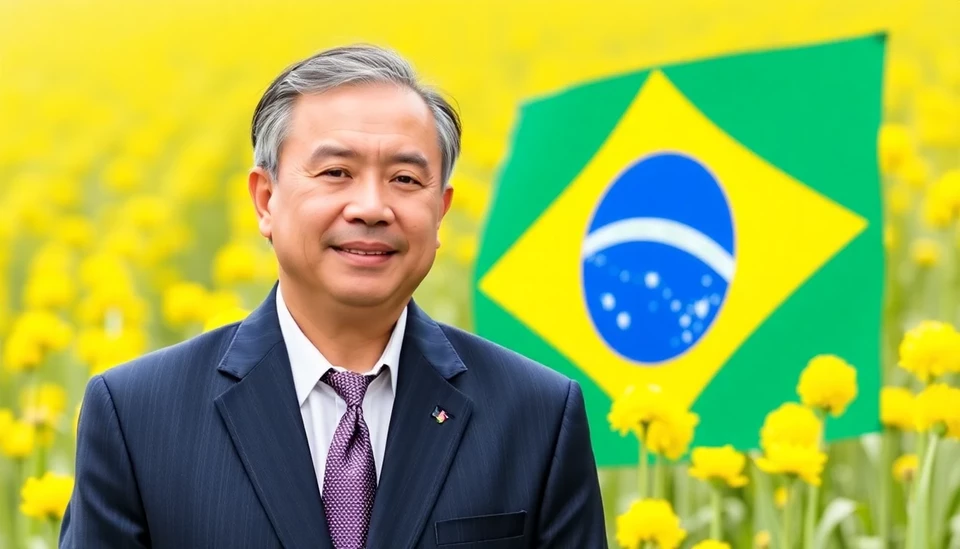
Brazil's Minister of Agriculture, Carlos Fávaro, has publicly expressed the belief that Brazil should take significant steps towards joining China's Belt and Road Initiative (BRI). This sweeping infrastructure and investment strategy, led by China, aims to enhance global trade connectivity through a network of road, rail, and maritime routes across various countries. Fávaro made these remarks during a recent forum in São Paulo, highlighting the potential benefits for Brazil's agriculture sector and broader economy.
The Belt and Road Initiative, launched in 2013, seeks to strengthen economic ties between participating countries through major infrastructure projects. China has invested heavily in numerous nations, enhancing their capabilities in transportation and trade. As one of the world's largest agricultural producers, Brazil stands to gain substantially from improved trade routes and facilities, potentially allowing its agricultural exports to reach new, lucrative markets.
Fávaro underscored that joining the BRI could provide Brazil with access to much-needed financing and technology transfers, which could be particularly beneficial for modernizing farming techniques and expanding the reach of Brazilian agricultural products. He emphasized how Brazil’s agricultural sector has already carved out a strong global presence, exporting vast quantities of soybeans, beef, and poultry. Being part of the BRI could further boost these exports by facilitating smoother logistics and infrastructure support.
Fávaro's comments come amidst a growing backdrop of Brazil-China relations, which have steadily strengthened over the years, especially in the agribusiness sector. China is already Brazil's largest trading partner, primarily importing agricultural goods. By aligning more closely with the Belt and Road Initiative, Brazil aims to reinforce this partnership, positioning itself as a critical player in global agricultural supply chains.
As the Brazilian government continues to deliberate over its international trade strategies, Fávaro remains optimistic that further engagement with China, particularly through BRI participation, can yield significant economic advantages. He noted that the Brazilian government must analyze the implications, negotiations, and expectations before making any decisions, but the potential for enhanced trade relationships is a compelling factor.
The discussion around Brazil's potential involvement in China’s Belt and Road Initiative raises important questions regarding the influence of foreign investment in domestic infrastructure and agriculture. It also touches upon Brazil’s historical apprehensions about over-reliance on any single economic partner. Yet, Fávaro appears resolute in his belief that the BRI could align with Brazil's agricultural growth objectives and the broader developmental goals of the nation.
In conclusion, the prospect of Brazil joining China's Belt and Road Initiative heralds a new chapter for its agricultural sector, promising potential investments that could reshape its trade landscape. As the global focus shifts towards sustainable and efficient agricultural practices, Brazil’s engagement with initiatives like the BRI might just offer a critical pathway toward achieving these ambitious goals.
#Brazil #BeltandRoad #China #Agriculture #TradeRelations #Economy #Infrastructure #Investment #Farming #GlobalTrade
Author: Rachel Greene




